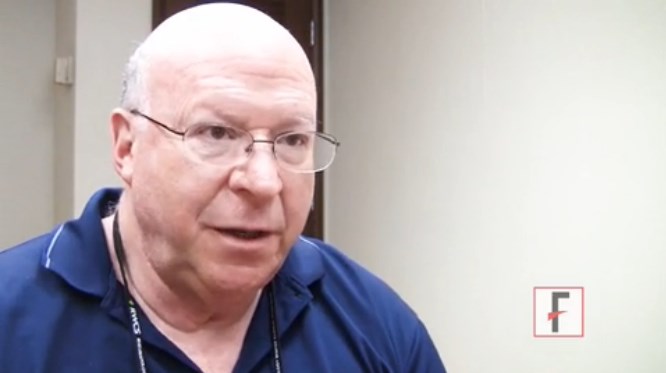User login
MAUI, HAWAII– Discontinuing medications when rheumatoid arthritis patients are doing well is a hot topic in rheumatology lately, but it’s tricky.
The idea is to give patients a break from the costs and side effects of steroids, methotrexate, and biologics. Whether or not doing so is a good idea has a lot to do with how you define remission, and the odds of recapturing patients if they flare.
Advice from Dr. Roy Fleischmann, a clinical professor of rheumatology at the University of Texas Southwestern Medical Center in Dallas, might help. At the 2015 Rheumatology Winter Clinical Symposium, he shared his know-how about tapering and discontinuing treatments, culled from his professional experience and the literature on the subject in a video interview.
The video associated with this article is no longer available on this site. Please view all of our videos on the MDedge YouTube channel
MAUI, HAWAII– Discontinuing medications when rheumatoid arthritis patients are doing well is a hot topic in rheumatology lately, but it’s tricky.
The idea is to give patients a break from the costs and side effects of steroids, methotrexate, and biologics. Whether or not doing so is a good idea has a lot to do with how you define remission, and the odds of recapturing patients if they flare.
Advice from Dr. Roy Fleischmann, a clinical professor of rheumatology at the University of Texas Southwestern Medical Center in Dallas, might help. At the 2015 Rheumatology Winter Clinical Symposium, he shared his know-how about tapering and discontinuing treatments, culled from his professional experience and the literature on the subject in a video interview.
The video associated with this article is no longer available on this site. Please view all of our videos on the MDedge YouTube channel
MAUI, HAWAII– Discontinuing medications when rheumatoid arthritis patients are doing well is a hot topic in rheumatology lately, but it’s tricky.
The idea is to give patients a break from the costs and side effects of steroids, methotrexate, and biologics. Whether or not doing so is a good idea has a lot to do with how you define remission, and the odds of recapturing patients if they flare.
Advice from Dr. Roy Fleischmann, a clinical professor of rheumatology at the University of Texas Southwestern Medical Center in Dallas, might help. At the 2015 Rheumatology Winter Clinical Symposium, he shared his know-how about tapering and discontinuing treatments, culled from his professional experience and the literature on the subject in a video interview.
The video associated with this article is no longer available on this site. Please view all of our videos on the MDedge YouTube channel
AT RWCS 2015
